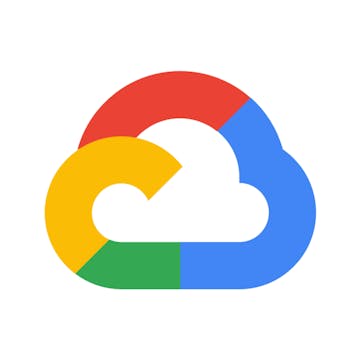
Good to know
Save this course
Activities
Review basic programming concepts
Show steps
Strengthen your foundation by reviewing basic programming concepts.
Browse courses on
Programming
Show steps
-
Review your previous programming coursework
-
Read introductory programming books or articles
Join a study group
Show steps
Collaborate with peers and enhance your learning through group discussions.
Show steps
-
Find a study group or create your own
-
Set regular meeting times
-
Review course materials together
Read 'Head First Java'
Show steps
Begin building a strong foundation in Java by reading a beginner-friendly guide.
View
Head First Java: A Brain-Friendly Guide
on Amazon
Show steps
-
Purchase the book
-
Read through the entirety of the book
-
Take notes and highlight important sections
Four other activities
Expand to see all activities and additional details
Show all seven activities
Complete Java tutorials on Oracle's website
Show steps
Enhance your understanding by following structured tutorials.
Browse courses on
Java
Show steps
-
Visit the Oracle Java tutorials website
-
Choose a tutorial appropriate for your level
-
Follow the tutorial step-by-step
Organize your notes and resources
Show steps
Stay organized and retain information better by compiling your materials.
Show steps
-
Gather all your course notes, assignments, and resources
-
Create a system for organizing and storing your materials
Build a simple Java application
Show steps
Apply your knowledge by building a practical Java application.
Browse courses on
Java
Show steps
-
Choose a simple project idea
-
Design the application architecture
-
Write the Java code
-
Test and debug the application
Solve Java coding challenges
Show steps
Strengthen your problem-solving skills by practicing coding challenges.
Browse courses on
Java
Show steps
-
Choose a platform for coding challenges
-
Select challenges appropriate for your level
-
Attempt to solve the challenges
Review basic programming concepts
Show steps
Strengthen your foundation by reviewing basic programming concepts.
Browse courses on
Programming
Show steps
- Review your previous programming coursework
- Read introductory programming books or articles
Join a study group
Show steps
Collaborate with peers and enhance your learning through group discussions.
Show steps
- Find a study group or create your own
- Set regular meeting times
- Review course materials together
Read 'Head First Java'
Show steps
Begin building a strong foundation in Java by reading a beginner-friendly guide.
View
Head First Java: A Brain-Friendly Guide
on Amazon
Show steps
- Purchase the book
- Read through the entirety of the book
- Take notes and highlight important sections
Complete Java tutorials on Oracle's website
Show steps
Enhance your understanding by following structured tutorials.
Browse courses on
Java
Show steps
- Visit the Oracle Java tutorials website
- Choose a tutorial appropriate for your level
- Follow the tutorial step-by-step
Organize your notes and resources
Show steps
Stay organized and retain information better by compiling your materials.
Show steps
- Gather all your course notes, assignments, and resources
- Create a system for organizing and storing your materials
Build a simple Java application
Show steps
Apply your knowledge by building a practical Java application.
Browse courses on
Java
Show steps
- Choose a simple project idea
- Design the application architecture
- Write the Java code
- Test and debug the application
Solve Java coding challenges
Show steps
Strengthen your problem-solving skills by practicing coding challenges.
Browse courses on
Java
Show steps
- Choose a platform for coding challenges
- Select challenges appropriate for your level
- Attempt to solve the challenges
Career center
Data Scientist
Information Systems Manager
Computer Network Architect
Machine Learning Engineer
Web Developer
Computer Scientist
Software Architect
Artificial Intelligence Engineer
Database Administrator
Computer Hardware Engineer
Computer Systems Analyst
Software Developer
Software Engineer
Data Analyst
Computer Programmer
Reading list
Share
Similar courses
OpenCourser helps millions of learners each year. People visit us to learn workspace skills, ace their exams, and nurture their curiosity.
Our extensive catalog contains over 50,000 courses and twice as many books. Browse by search, by topic, or even by career interests. We'll match you to the right resources quickly.
Find this site helpful? Tell a friend about us.
We're supported by our community of learners. When you purchase or subscribe to courses and programs or purchase books, we may earn a commission from our partners.
Your purchases help us maintain our catalog and keep our servers humming without ads.
Thank you for supporting OpenCourser.



